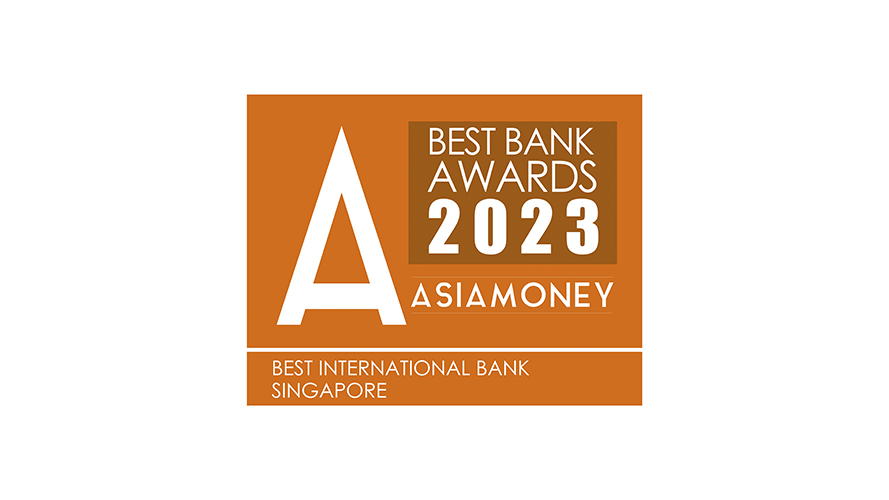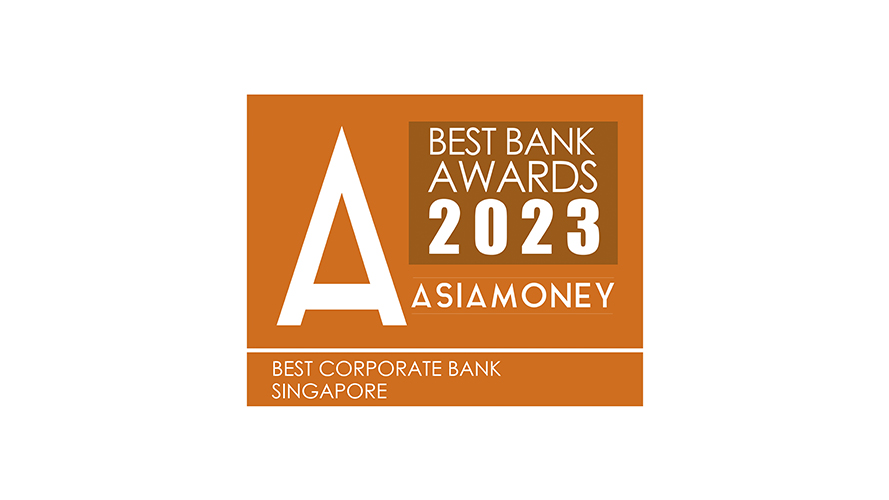What is ESG?
Environmental, Social and Governance (ESG) is a set of criteria that can be applied to how a company operates. When we talk about ESG investing, we're referring to the use of these criteria as factors in our investment decisions and in evaluating potential companies to add to your financial portfolio.
Sustainability is the cornerstone of ESG investing. The global economy is putting a spotlight on responsible investments – an approach to developing sustainable investment solutions focused on longer-term wins, shaped by ESG principles. HSBC has served the needs of an ever-evolving word for over 150 years. We're committed to sustainability because we're dedicated to the communities and societies in which we operate. And to that cause, we champion building a better tomorrow for future generations to come.
HSBC sustainable investments include investment approaches or instruments which consider ESG and/or other sustainable factors to varying degrees. There's no guarantee that sustainable investments will produce returns similar to those that don't consider these factors. At HSBC, we see three main ways to embed sustainability into an investment portfolio, which can be applied across your portfolio allocations:
Ways to invest
Unit trusts
Why is ESG important?
The financial world is getting increasingly plugged in to ESG development and as a result, we're seeing more and more companies incorporating ESG principles into their operations, instead of purely focusing on profitability. On an individual level, integrating ESG into your investment decisions creates a more resilient portfolio that will stand the tides of time. When individual investors, corporates and societies place ESG principles at the forefront, it's a win on all fronts that aims at building a better world and making sure the resources we have today will still be around tomorrow, all while unearthing great opportunities in the process.
With the UN Sustainable Development Goals (SDGs) in place, the world's estimated financial needs for achieving the SDGs are between USD5 trillion and USD7 trillion a year1. Major changes have taken place, spurred by the UN's 17 Sustainable Development Goals encompassing issues such as energy consumption, social justice, biodiversity, and economic growth2.
On an individual level, integrating ESG into your investment decisions may open up possibilities to support and contribute to SDGs while creating a more resilient diversified portfolio.
Common ESG sustainability issues

Environmental
- Climate change
- Air and water pollution
- Waste management
- Energy efficiency
- Water scarcity

Social
- Human rights
- Consumer privacy
- Gender equality
- Data security
- Health and safety

Governance
- Board structures
- Company ownership
- Financial reporting
- Business ethics and culture
- Executive remuneration
Key features

Mitigate risk
E, S and G factors are important in understanding the inherent risks of companies and their operating performance in the long term and increasingly in the nearer term. Integrating ESG issues in investment decisions can help manage these risks.

Unlock opportunities
Sustainability is opening a world of opportunity – deployment of sustainable solutions can help capture these opportunities.

Deliver potential capital growth
Evidence shows that companies with better Environmental, Social and Governance (ESG) credentials may be more likely to show better financial performance1.
Source: NYU Stern: Centre for Sustainable Business: ESG And Financial Performance: Uncovering the Relationship by Aggregating Evidence from 1,000 Plus Studies Published between 2015 – 2020.
Understanding your sustainable investing preferences
At HSBC, we're committed to helping you understand your preferences when it comes to sustainable investing.
You can speak to your Relationship Manager to find out more about the 'ESG analysis' feature on your Wealth Dashboard and other resources such as ESG Insights. These are designed to support your sustainable investment journey.
Your Relationship Managers may invite you to complete a short questionnaire. This will help us identify your sustainable investing interests and preferences. The questionnaire is not mandatory to your investing with us, and your responses won't affect the suite of products we offer you.
Ways to invest


Invest in ESG Funds
To filter for ESG funds, head on over to Discover Funds
Structured products
Structured products3 are investment products where returns are linked to an underlying asset with pre-defined features such as tenor, currency and payout calculation.
The underlying assets of structured products can include equities, interest rates, commodities, mutual funds and foreign currencies, among others. These underlying assets can be linked to ESG-related strategies.
For more information on the availability of these structures, please contact your Relationship Manager.
Green bonds
A green bond is a bond4 that uses its proceeds solely for the financing or re-financing of green projects. The issuer must also declare the bond to be green and commit to a level of transparency on how the bond's proceeds are used.
A green bond should be put together in line with the Green Bond Principles (GBPs), a set of voluntary guidelines created by the International Capital Markets Association (ICMA). According to these GBPs, a company does not have to be green to issue a green bond, but all of the bond proceeds have to go towards green or environmental projects.
For more information on our range of green bonds, please contact your Relationship Manager.
FAQs
Sustainability at HSBC
For more information on HSBC Group's Sustainability commitments, please refer to Our Climate Strategy for the most up to date information.
More resources

Sustainability, the HSBC way
See how we're doing our part to build a sustainable future.

Your quick guide to sustainable investing
Learn more about responsible investment and the opportunities it can create.

Pick up our latest ESG insights
Get our take on the world of ESG and sustainable investing.
1 Original Source: UNA-UK, sustainablegoals.org.uk.
Proposed Source: SDG Impact, sdgimpact.undp.org/assets/SDG-Impact-Brochure.pdf
2 Source: United Nations Department of Economic and Social Affairs, https://sdgs.un.org/goals
3 Structured products are available only to Accredited Investors. Other eligibility criteria apply, please visit https://www.hsbc.com.sg/wealth/investments/products/structured-products/ for more details.
4 Bonds are available only to Accredited Investors. Other eligibility criteria apply, please visit https://www.hsbc.com.sg/wealth/investments/products/bonds/ for more details.
5 Source: HSBC Global Research, "ESG Playbook", October 2018

